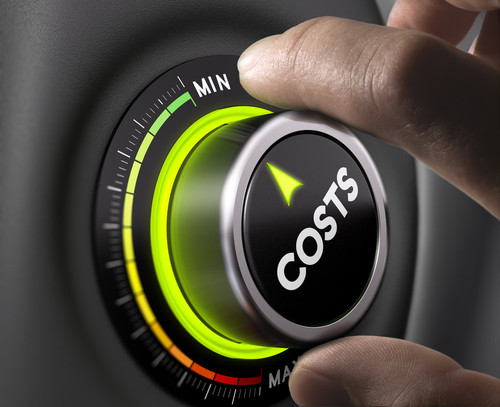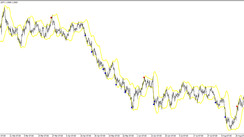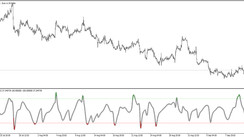Very often we find that the vast majority of traders actually do not understand all the costs, for opening and closing trades, which they always (under all circumstances) have to pay when trading Forex!
Because of this conclusion, we decided to write this short and snappy article in an effort to demonstrate the hidden costs of Forex trading that could prove eye-opening for some of the traders who will read this.
However, before we start writing about the issue itself, we would first like to show why this topic is so extremely important. The main issue is the fact that many traders have a great and profitable trading system on paper (theoretical), but in reality – on a live trading account very often it does not work.
Why this is the case seems to confuse many traders. And, it doesn’t have anything to do with the psychology of trading on a live account (which is a completely different topic for a different article).
Rather we are talking about purely mechanical systems, sometimes even traded by robots that are perfectly profitable on a demo account and yet under the same conditions (spreads or commission), the same trades at the same time on the same currency pairs are unprofitable on a live trading account.
Essentially for this kind of a situation, trading costs are to be blamed.
When you ask any Forex trader what costs for opening and closing trades do you have to pay to your broker, for sure 95% of the traders will answer that it is the spread (and maybe the commission if it applies depending on the broker and type of account).
Yes, of course, it really is. For each transaction, you have to count the spread (the difference between the Ask and the Bid price) as the main cost and possibly the commission (commission is calculated according to the size of the lot). However, spreads and commissions are not the only expenses in trading!
And, when I say not the only expenses, I mean really far from the only expenses! So, what do we have to pay for each transaction in addition to the spread and any commission?
We are talking about the quality of trade execution.
Absolutely a very important and sometimes the biggest cost for each transaction (both at the entry and at the exit from the trade) is the quality of execution.
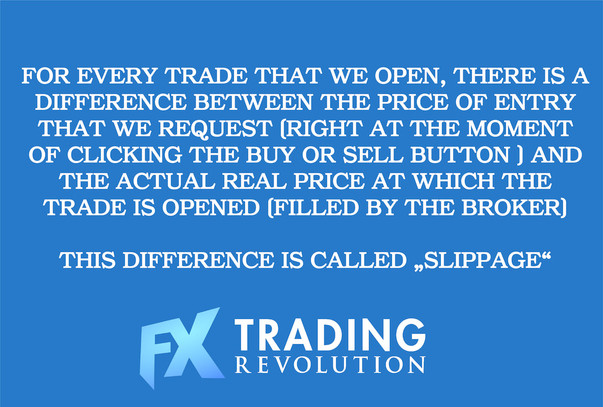
Maybe you are now shaking your head in disbelief because you don’t quite understand how this could happen, so let me explain in detail.
For every trade that we open, there is a difference between the price of entry that we request (right in the moment of clicking on the BUY or SELL button in your trading platform) and the actual real price at which the trade is opened (filled by your broker). This difference is called „ slippage “.
There is an accurate true proportion - that the lower quality of trade execution a broker provides you, the greater the negative slippage you will get with every trade.
Let's take a look at how much slippage can affect the final trading results to demonstrate what I mean.
Here are two brief examples of the same trade on a demo and on a live account:
As you can see, the profit from exactly the same trade on a demo account was 57 USD, but on the real account due to slippage it was only 37 USD. The difference is a whopping 35% on just one single trade.
Consider that this is an example of moderate slippage, but with bad brokers, slippage can be much higher – leading to big losses even with a winning trading strategy.
When we realize that we „pay“ slippage on the overwhelming majority of our trades (both at the entry and at the exit of a trade), we can see how the difference in the final results is drastic.
Of course, slippage itself in trading is a normal part of trading. Under volatile and less liquid market conditions we cannot always get our exact requested price of entry and exit.
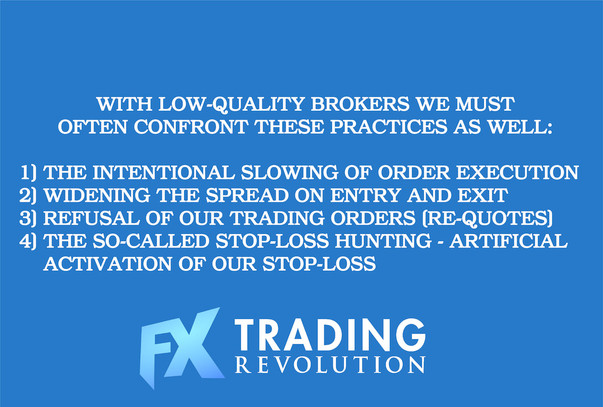
However, the problem comes when slippage is extremely abused by brokers, whether it’s in the form that it is artificially increased, or in the form that with most brokers you will get only negative slippage which greatly decreases the net results of a trading strategy or system.
Slippage, of course, is not the only hidden cost that traders have to pay. With low-quality brokers we must often confront these practices as well:
Finally, the only real option to avoid all of these practices is to simply trade with a reputable, regulated and fair broker. It’s really the best option at the end of the day. You can find the most trusted Forex Brokers at our Real Forex Brokers Reviews page.

